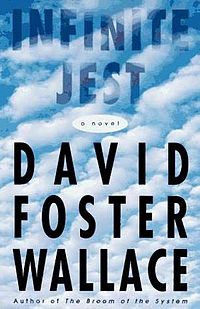If you know anything about the late, American, literary wizard, David Foster Wallace, you know that he used esoteric, medical nomenclature (e.g. “hydrocephalic”) like most writers use conjunctions. Or, you may know him as the author of the 1,079-word masterwork of meta-metafiction, Infinite Jest. Either way, what you might not know is that aside from writing about herds of feral hamsters in the Canadian wilderness and men trying to eat themselves into becoming infinite, David Foster Wallace also wrote an essay about writing. Unsurprisingly, it opens with a nod to Don DeLillo and a metaphor about a deformed infant (who, among other things, is hydrocephalic). The essay, “The Nature of the Fun,” is specifically about fiction, but it can probably be safely applied to any kind of writing. And while the style is quirky and original, in typical Wallace fashion, the main points are pretty basic.
Writing a Book Takes Work—a Lot of Work.
Writing, like taking care of a “hideously damaged infant,” takes a lot of time. Wallace uses his trademark dark humor to hit this point home. A writer must not only invest regular time into her or his work, but she or he must also give it near obsessive attention. For Wallace, the writer has to huddle over the writing with equal parts business and cautious care. The point he makes in the essay is, ultimately, nothing surprising: just like you thought, writing a book takes beaucoup time.
Writing Is More Than Work—It’s a Relationship
Time and effort and work aren’t enough to keep the hideously deformed infant—that is the Wallacian metaphor for writing—going. In Wallace’s opinion, the writer has a relationship with the writing that is personal. Writers want their writing to do well, just as parents want their children to do well. They want their writing to be liked; they love their writing. But in the analogy, the writer/parent also fears that something is wrong with his child. He hates and fears and loves the child/writing, and desperately wants it to turn out well. Anyone who has written can empathize with the love/hate relationship Wallace describes between a writer and her or his ideas.
Writing a Book Is Fun (Well, at Least Sometimes)
Believe it or not, Wallace’s essay isn’t all morbid humor. Wallace ditches the DeLillo-inspired hydrocephalic-infant-metaphor behind about halfway through the essay. Part of the reason, we can reasonably ascertain, is that it doesn’t really seem like a great fit for one of his last points: that writing is fun. Wallace recognizes that people write because they care about what they’re writing, because they care about their ideas, and because they like to express those ideas. Furthermore, people enjoy the idea that—one day—other people can read those same ideas and enjoy them in turn. Wallace reminds us that, at least one reason we read and write books is because they are fun (albeit, a fun we sometimes really have to work for).
A Ghostwriter or Editor Can Do the Work for You, Keep the Writing Endearing, and Ensure that It’s Fun
Do you feel passionate about an idea or story? If you want help raising that Wallacian infant to maturity, call 1-844-997-4837 to discover how our ghostwriting or editing services can assist you.
Categories:
Writing Help

